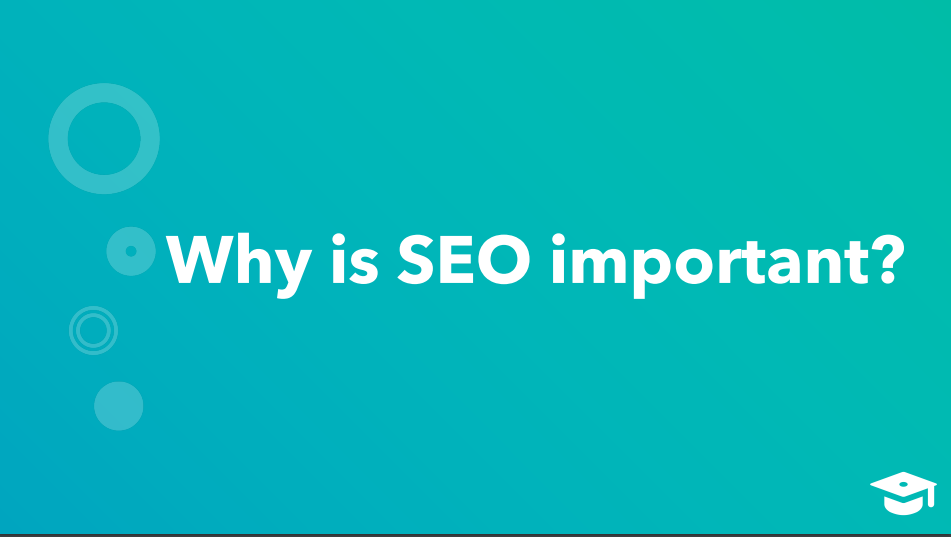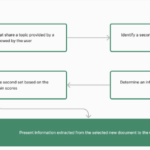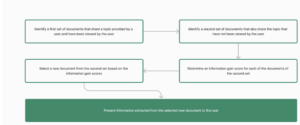In today’s digital landscape, getting found online is more important than ever. With almost as many websites as people on Earth, it’s become increasingly difficult to cut through the noise. The climb to get to page one of search engine results is getting tougher. Users are more discerning than ever about the content they read and the websites they choose to interact with.
The majority of online experiences involve search.
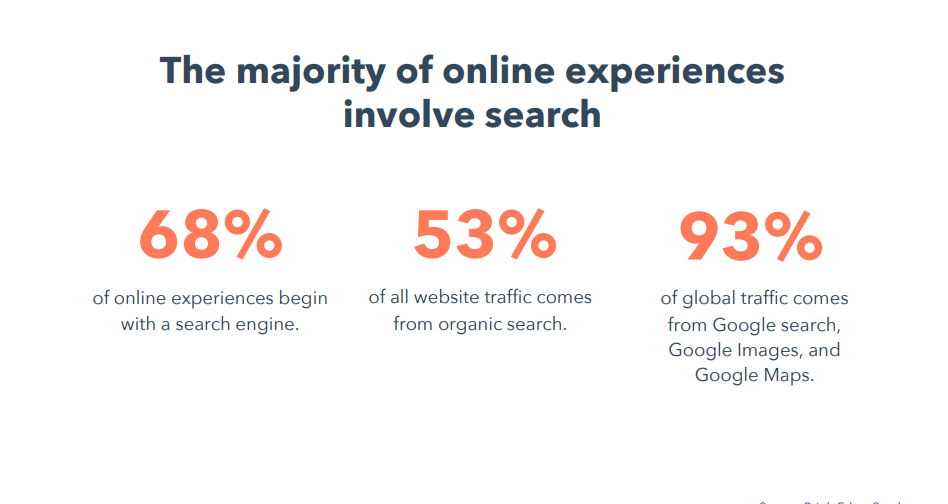
- 68% of online experiences begin with a search engine (Source: BrightEdge)
- 53% of all website traffic comes from organic search (Source: BrightEdge)
- 93% of global traffic comes from Google search, Google Images, and Google Maps (Source: Sparktoro)
- 93% of global traffic comes from Google search, Google Images, and Google Maps (Source: Sparktoro)
To fully understand the importance of search, first look at how the Internet works. In its simplest form, the Internet is a massive collection of pages connected to each other by links.
Think of the Internet like a city.
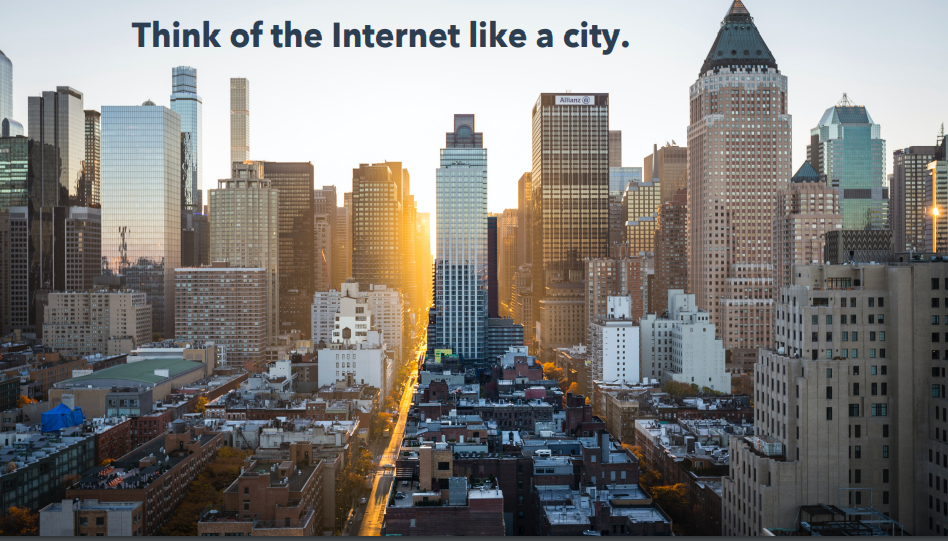
How is the Internet like a city?
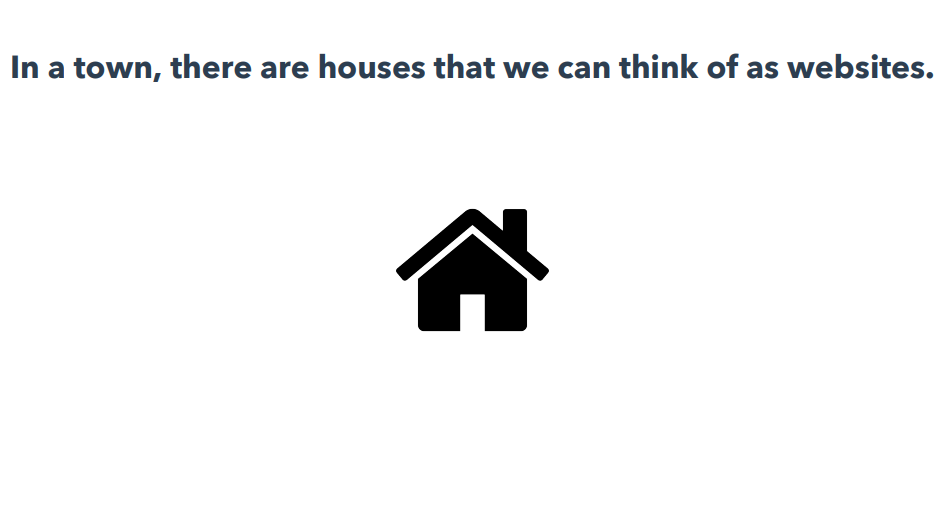
In a town, there are houses that we can think of as websites. Each room inside the house is like a different webpage on that site, and the hallways and stairs connecting the different rooms are the internal links between the site’s pages.
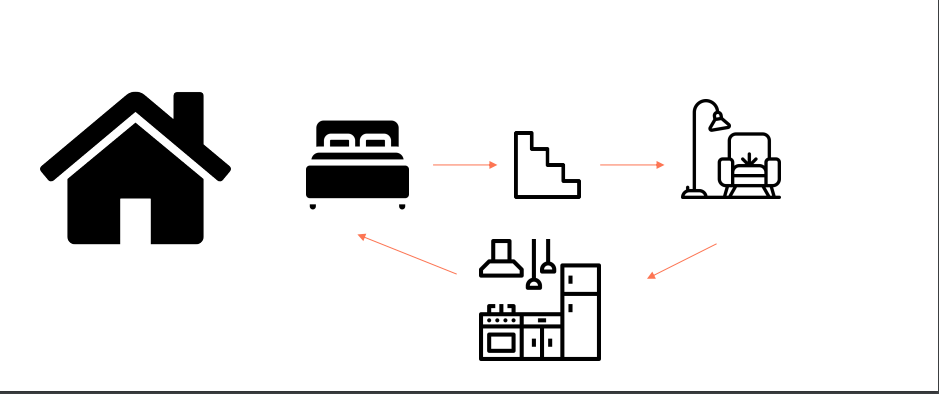
On each street in town, you have different houses, representing lots of different websites. As more and more houses are built and the Internet continues to grow, the town expands to become a city. Connecting all of these houses are roads, which are like external links. The roads connect different buildings and neighborhoods together. A big popular website is like a shopping mall, with lots of roads and maybe even a highway leading to it. Not only is it easy to find, there are several different ways to get there.
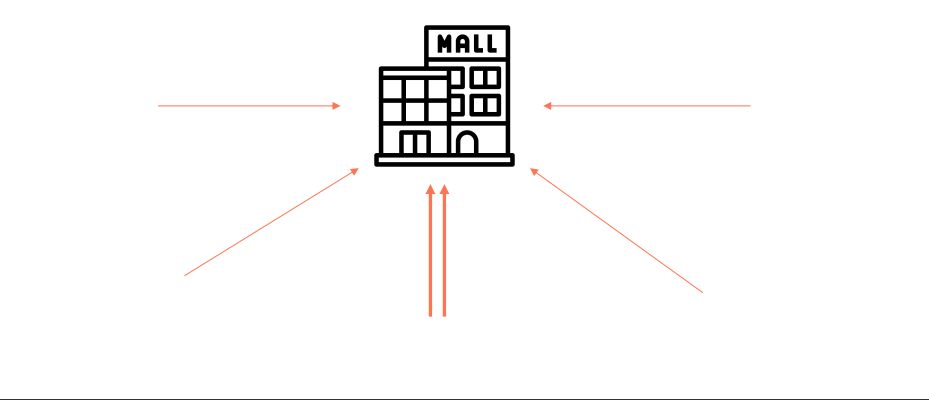
If you know a building’s address, you can drive straight to it. This is like typing in the URL of a website. But if you don’t know where the building you want to visit is, you’ll have to go to the town directory or Yellow Pages to look for it — assuming you don’t have the Internet, of course! You use the information you do have about the building —it’s a red brick building, it has three stories, it’s on the other side of town — to look it up. This is kind of like performing a search using a search engine.
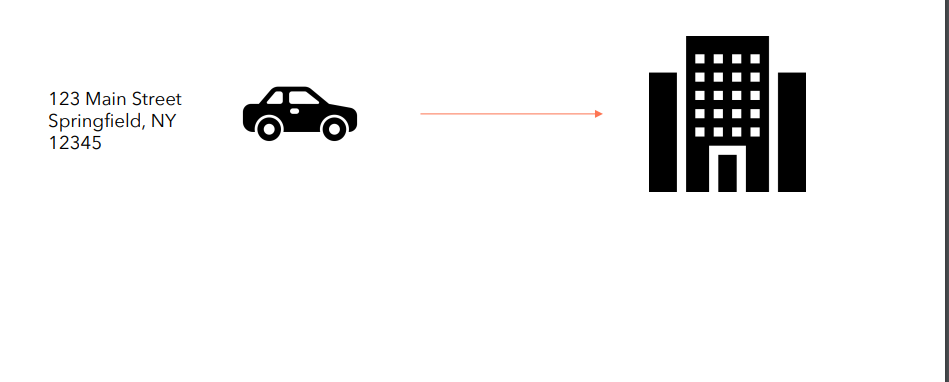
This is a pretty basic analogy, and the Internet in practice is way more complex. But, hopefully, this starts to get you thinking about how websites relate to one another and the role that search engines play. When the Internet began, getting to a website was cumbersome. You could only reach a website by manually typing in its address or by clicking a link from another website. As the internet grew and thousands of websites were created, search engines were created to help users navigate the web and find what they needed easily.
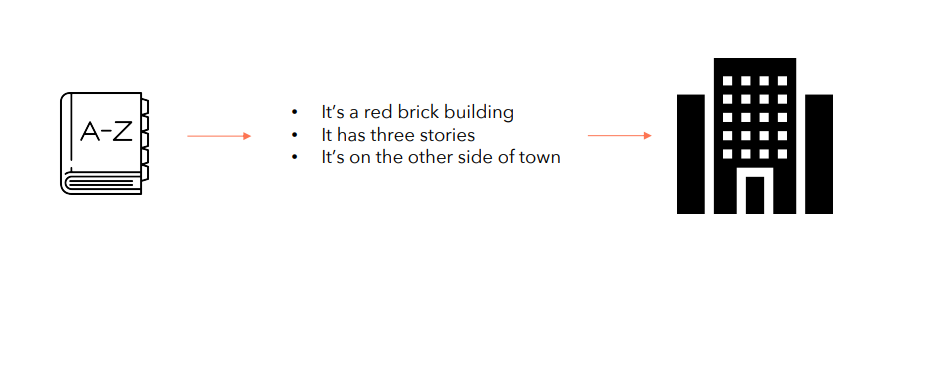
There are lots of search engines out there like Yahoo and Bing. But we’re only going to focus on Google since it accounts for over 90% of search queries worldwide. (Source: https://www.oberlo.com/statistics/search-enginemarket-share) With the advent of search engines, naturally, came the start of SEO.
What is SEO?
SEO, which stands for search engine optimization, is the practice of increasing the quantity and quality of traffic to a website through organic search engine results. (Source: Moz) In the early years of SEO, search engine algorithms were simpler and bad practices like “keyword stuffing” were common. But as search engines became more sophisticated, their algorithms became smarter and more adept at serving users more relevant content to answer their search queries. this, at the end of the day, is Google’s (or any search engine’s) goal. They are focused on their users (the searchers) and giving them the best experience by showing them the best results. To do this, they’ve made their algorithm smarter — with a smarter algorithm and more competition than ever before, SEO helps you stay competitive. If you want an overview of the major Google algorithm changes over the years, check out the resources for this video.
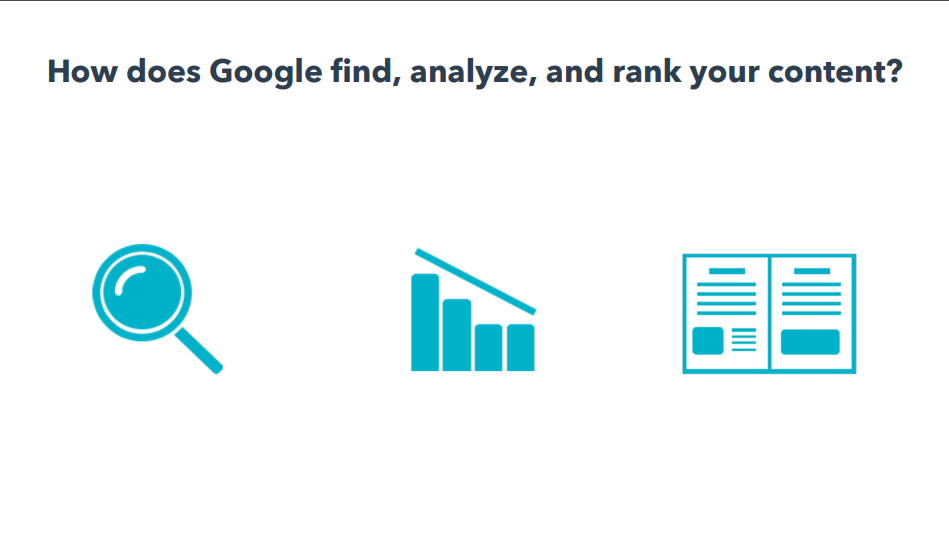
When you’re doing SEO today, you need to balance focusing on the user and making it easy for search engines to crawl your website. You can have the best content on the web, but nobody will know about it if your website isn’t optimized for search engines. Understanding even just the basic “to-dos’s” and “not-to-do’s” of SEO could make (or break) how your website is found. Google cares about E-A-T. E-A-T stands for expertise, authoritativeness, and trustworthiness.The expertise, authoritativeness, and trustworthiness of a page’s contents, of the website itself, and of the creator of the website’s
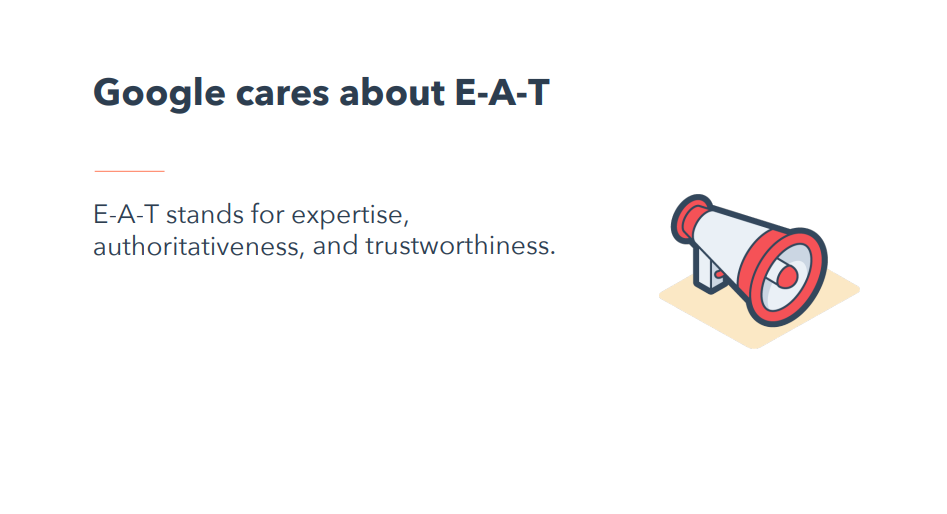
content all matter immensely. If a page has low E-A-T, you can bet that it won’t rank for many high-value keywords. E-A-T is a great guiding principle when it comes to both SEO and the creation of excellent, high-quality content that helps answer or solve searchers’ questions or problems. Going beyond that, there are countless tactics and strategies when it comes to SEO, and it can be hard to tell which will work for you. SEO is ongoing and cumulative.
There is no silver bullet or quick-fix. The same SEO strategy won’t provide the same results for different companies.
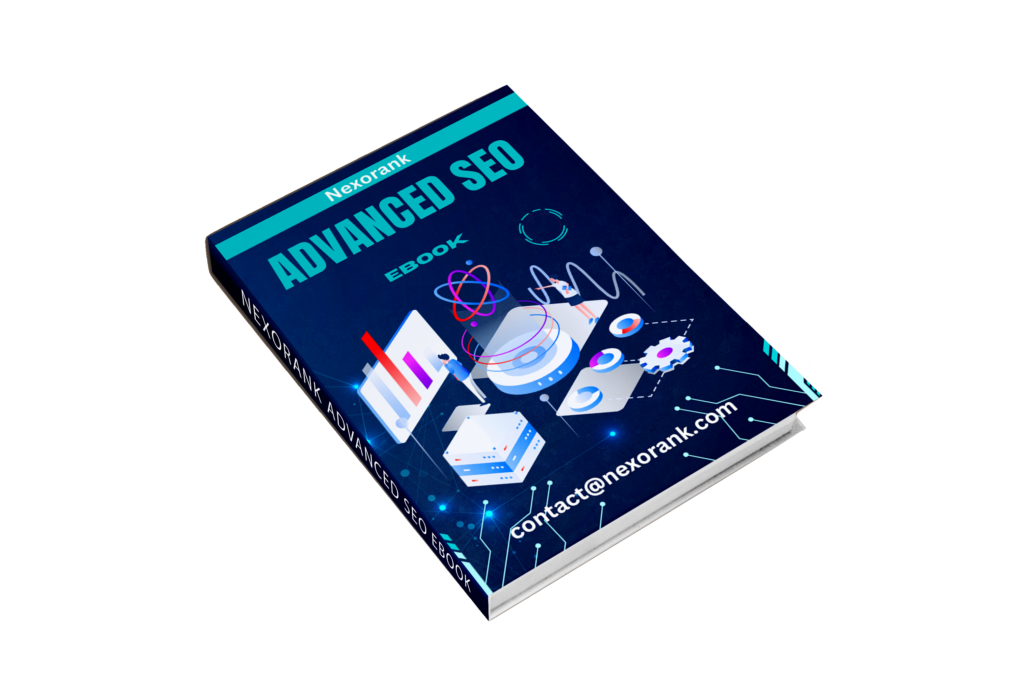
Advanced SEO EBOOK
Unlock the secrets of advanced SEO techniques with this comprehensive Ebook. Learn strategies to boost your website’s visibility and dominate search results.
Ranking signals affect different sites very differently and depend on the website’s area of expertise, its content strategy, and even the types of searchers it attracts. It’s also important to remember that SEO isn’t a short-term tactic: it’s a long-term strategy. It can take weeks or even months to start seeing results. Ranking organically takes time, so it’s important to start as soon as you can. Many marketers and business owners get discouraged when they don’t see immediate results and suddenly appear in the top spot on Google after starting with SEO. But sticking with SEO has so many benefits: not only is it more cost-effective than other strategies like paid advertising, but it has a “snowball” effect. As you invest over


